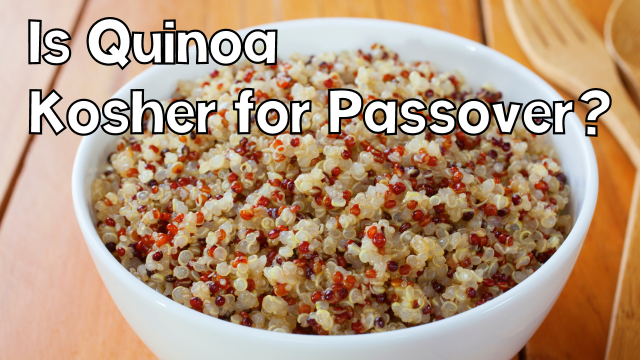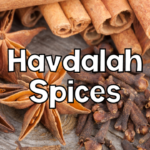Passover, or Pesach in Hebrew, is a Jewish festival that commemorates the freedom of the Israelites from slavery in ancient Egypt. Passover has strict dietary laws that are rooted in the Torah, specifically the book of Exodus. The central commandment is to refrain from eating chametz, which includes leavened bread and anything made from the five major grains: wheat, barley, rye, spelt, and oats. They’re considered chametz because they ferment and rise when mixed with water. Instead, during Passover, matzah, an unleavened bread, is consumed to symbolize the Israelites’ hasty departure from Egypt.
Clearly, quinoa isn’t listed as one of the forbidden grains. So, why am I writing a whole blog post about it. Is quinoa kosher for Passover? The answer is probably, but maybe not always. Clear as mud, right? Let me explain.
Quinoa, a grain-like seed, has become increasingly popular in modern cuisine due to its nutritional value and versatility. However, unlike the five major grains, quinoa does not fit the traditional definition of chametz, as it does not contain gluten and does not rise when cooked. There are varying opinions on whether quinoa is kosher for Passover.
Some rabbis argue that since quinoa is not one of the five chametz grains, it should be permissible during Passover. They highlight the historical absence of quinoa from the traditional Jewish diet during Passover as evidence that it is not chametz. On the other hand, more conservative rabbis point out that quinoa was not consumed in ancient times, and its recent popularity in modern cuisine raises concerns about cross-contamination during the manufacturing process. Given that strict kosher guidelines require complete separation of chametz and non-chametz foods during Passover, these rabbis advocate for caution and refrain from consuming quinoa during the festival.
To address this dilemma, several brands of quinoa have received certification as kosher for Passover. This certification indicates that they meet the strict requirements necessary to ensure their separation from chametz grains. These certifications provide reassurance for those who wish to include quinoa in their Passover meals.
The question of whether quinoa is kosher for Passover has sparked lively discussions among Jewish communities around the world. While some embrace quinoa’s inclusion as a valuable addition to their Passover diet, others prefer to adhere to more conservative practices, emphasizing the importance of maintaining strict kosher guidelines during this sacred festival.
As with many aspects of Jewish tradition, the quinoa debate highlights the dynamic nature of culinary customs, where ancient laws intersect with modern culinary innovations. Whichever path one chooses, the essence of Passover remains unchanged – a time to remember the past, celebrate freedom, and come together as a community to observe and honor the rich traditions that have endured for millennia.





